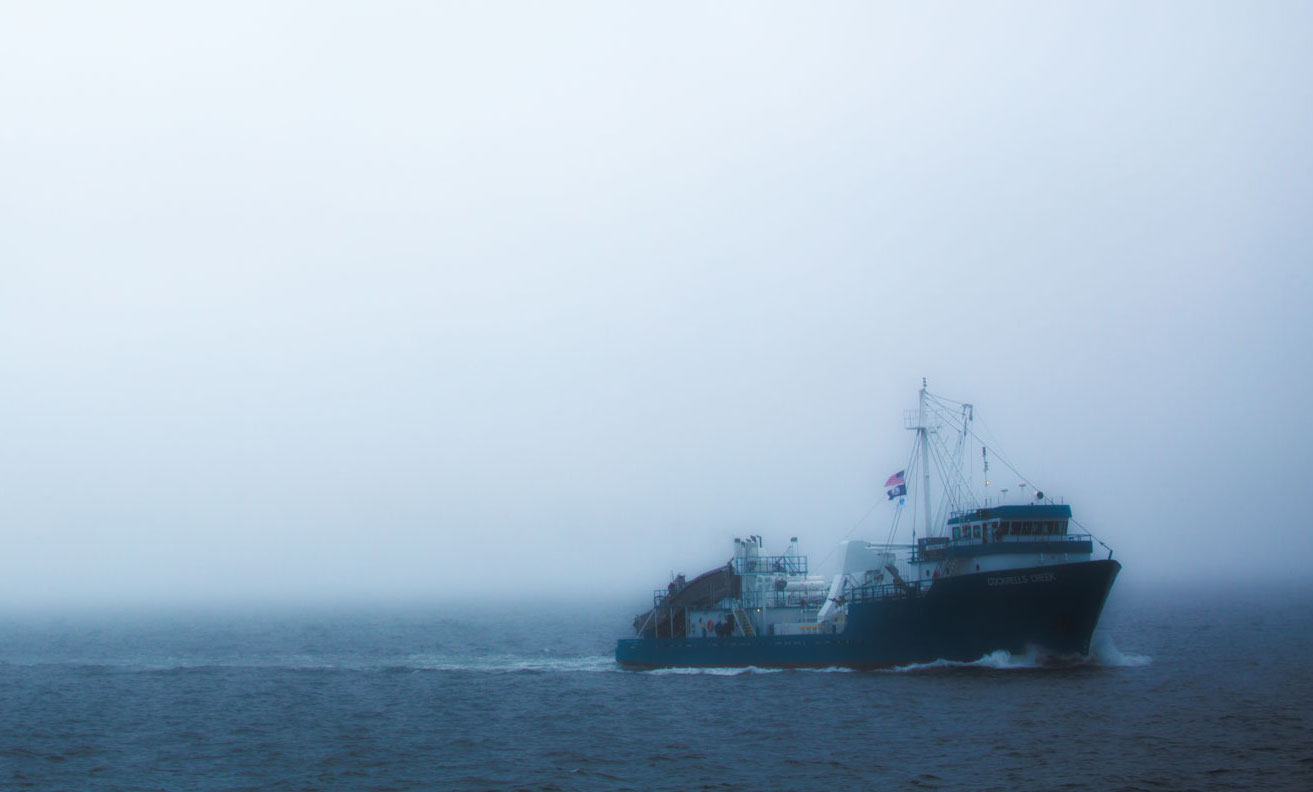REEDVILLE, VA / ACCESSWIRE / September 12, 2019 / Omega Protein strictly complies with Virginia law, and strives to abide by all recommendations of the Atlantic States Marine Fisheries Commission (ASMFC). However, the abundance of menhaden in the Chesapeake Bay this year combined with adverse fishing conditions outside Bay waters, particularly late in the season, means the Company will exceed the ASMFC's arbitrarily low and unscientific cap recommendation on harvest in the Bay for the 2019 season. The Company will comply with the existing Bay cap codified in Virginia law.
The ASMFC's Bay cap was initially implemented in 2006 at just over 109,000 metric tons (mt) as a political compromise, not as a scientific necessity. The ASMFC wrote at the time that the cap was "precautionary and not based on a scientifically quantified harvest threshold, fishery health index, or fishery population level study."
While Omega Protein opposed - and continues to oppose - management that is not based on science, it agreed to the 2006 Bay cap to satisfy the concerns of stakeholders while millions of research dollars were spent to determine the impacts of menhaden removals from the Bay. Despite all of the money spent and research conducted, none of the results provided any evidence of negative impacts from menhaden fishing in the Bay.

In 2012, Omega Protein agreed to, and Virginia adopted, a 20 percent reduction in the Bay cap to its current 87,216 mt figure, a change that stemmed from the ASMFC's fears of potential overfishing of the coastwide menhaden population. Those fears were proven unwarranted by the 2015 Atlantic Menhaden Benchmark Assessment that indicated the population has not experienced overfishing since the 1960s. While the ASMFC has since increased the quota three times, the Bay cap has never been concurrently increased.
Given that the Atlantic menhaden stock remains healthy and robust, the Virginia General Assembly did not codify the ASMFC's 2017 decision to slash the Bay cap by over 41 percent to 51,000 mt, an arbitrary figure that was not scientifically derived. The proposed lower cap was based on the averageharvest in the Bay over the previous 5-year period. Taking a multi-year average and making that average the maximum allowable harvest removes necessary flexibility from the fishery, since it fails to provide for where fish are located and fluctuating weather conditions season-to-season.
This season, adverse ocean conditions for fishermen coincided with an abundance of menhaden in the Bay. Facing unfavorable weather conditions, the company frequently could not send its employees outside the Bay into an unsafe working environment in the open ocean. But because the fish appeared with regularity in the safer, more protected Bay, menhaden could be harvested there without incurring unnecessary risks.
Omega Protein has great respect for the ASMFC, its commissioners and its staff. But this was a rare situation in which the Commission made an unscientific and arbitrary recommendation, which would have resulted in either forced, unsafe fishing conditions or economic hardship for hardworking fishing families. Risking our employees' safety is never a choice we will make. With our employees' livelihoods and the economic well-being of Reedville, Virginia and the surrounding Northern Neck region on the line, shutting down operations was not a viable alternative.
Given the untenable situation created by the unnecessarily reduced Bay cap, we were left with no choice. Nonetheless we remain in compliance with the existing cap, as codified in Virginia law, which sets the cap at 87,216 mt.
At the ASMFC Summer meeting in August 2018, NOAA attorney Chip Lynch told the ASMFC that finding Virginia out of compliance with its menhaden management plan would be "the first time ever…that the federal government would receive a non-compliance referral for a fishery that is not overfished and overfishing is not occurring. And there is record evidence from the leadership of the Commission that the [Bay cap] is not related to conservation."
That statement referred to a January 2018 letter from the ASMFC's Chairman to then-Virginia Marine Resources Commissioner John Bull which acknowledged that, "The Bay Cap limit was a compromise reached by managers, fishery stakeholders, and environmental NGOs," and made clear that there was insufficient evidence presented to suggest the Bay cap was necessary to protect the Bay.
Omega Protein has operated in the Chesapeake Bay for over a century. The Company continues to support sound, science-based management of menhaden, which has made the fishery successful, including its recent sustainability certification by the Marine Stewardship Council. We look forward to working with the ASMFC as it develops and implements Ecological Reference Points for menhaden in the near future. But in the meantime, we cannot adhere to arbitrary and unscientific measures that would needlessly harm hardworking Virginia fishermen.
About Omega Protein
Omega Protein Corporation is a century old nutritional product company that develops, produces and delivers healthy products throughout the world to improve the nutritional integrity of foods, dietary supplements and animal feeds. Omega Protein's mission is to help people lead healthier lives with better nutrition through sustainably sourced ingredients such as highly-refined specialty oils, specialty proteins products and nutraceuticals. Omega Protein is a division of Cooke Inc., a family owned fishery company based in New Brunswick, Canada.
The Company operates seven manufacturing facilities located in the United States, Canada and Europe. The Company also has a long-term supply contract with Alpha VesselCo, LLC which owns 30 vessels which harvest menhaden, a fish abundantly found off the coasts of the Atlantic Ocean and Gulf of Mexico. The Company's website is www.omegaprotein.com.
All fishing vessels formerly owned by Omega Protein are owned and operated by Alpha VesselCo, LLC, an independent company.
PRESS CONTACT:
Ben Landry
713-940-6183
blandry@omegaprotein.com
SOURCE: Omega Protein
View source version on accesswire.com:
https://www.accesswire.com/559458/Omega-Protein-Statement-on-the-Chesapeake-Bay-Cap
